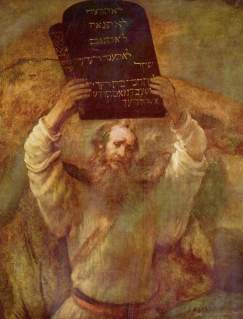Praise Factory – 4
volunteers: High Priest, (2 sheep/ 2 goats), and a pull
Items needed: picture of bull, 2 of sheep, 2 of goats – laminated,
hole-punch, red twine and blue painters tape, red spray bottle.
As night falls near Jerusalem most people head indoors to
bed, all except the shepards. The shepards are still up and even at night they
stand guard over their flocks of cattle, sheep and goats. Their job is to watch
over them and protect them from wild animals and thieves. The animals were
useful for many things but most importantly for God’s people many of these
animals were used as sacrifices that they offered up to God as a sign of their
desire to repent – turn from their sin and trust in God to save them. God
received these offerings in repentance and faith and allowed the Jews to remain
His people.
So many bulls, sheep and goats were offered up to God each
year that the priests needed special Temple flocks of animals to be kept nearby
in the hills of Bethlehem just for Temple sacrifices. Night and day - every day,
2 lambs were brought to the Priests and sacrificed for the sins of God’s
people.
And each year for the Day of Atonement the High Priest would
offer up the blood of a bull for his sin so he could enter into God’s presence.
Then 2 goats were brought to the High Priest. A red thread was tied around the
neck of the goat chosen as the people’s sin offering. When that goat was killed
its blood was gathered and sprinkled on everything in the Temple. This was a
symbol that the Lord counted the blood offering as purifying the things in the
Temple of the people’s sin so that God’s presence could continue to dwell among
them another year.
The 2nd goat had a red thread tied around its
head and it was chosen to be the scapegoat. The high priest laid his hands on
the goat’s head and confessed Israel’s sins and the goat was taken away, outside
of town and pushed off a cliff, By its death the Lord counted Israel’s sins as
taken away and punished so they could keep worshiping God for another year.
Without the many animals and without the dedicated priests
and shepards there would be no sacrifices. But ultimately animal blood
could never take away the stain of human sin. Only the perfect blood of
a perfect human could be the perfect substitute. This is why God sent Jesus to
be born right where the Temple flocks were kept near Bethlehem in a stable
because he came to be our perfect sacrifice. That night when God came down to
live amongst us the angels appeared to the shepards and announced the birth of
Jesus. From that night on Jesus always did what His Father wanted Him to do and
He always said what the Father wanted Him to say. He kept God’s Law perfectly
and when he offered up His life on the cross as the perfect substitute sin-offering
for God’s people, he also became the perfect scapegoat carrying away our sins.
When Jesus went back to heaven he also became the perfect High Priest for
believers offering up His own perfect blood for sin - this was the final
sacrifice – sin and death were conquered by Jesus.
Closing prayer:
Let’s close with prayer:
We thank you Father that you, yourself provided the perfect
sacrifice for sin that you required and we needed. We confess that we too are
sinners in need of repentance and trust in Jesus. Thank you Christ for giving your
life to save your people. We ask that your Spirit works this repentance and
trust not only in our lives but the lives of our friends and family. We honor
you Lord, thank you. Amen















